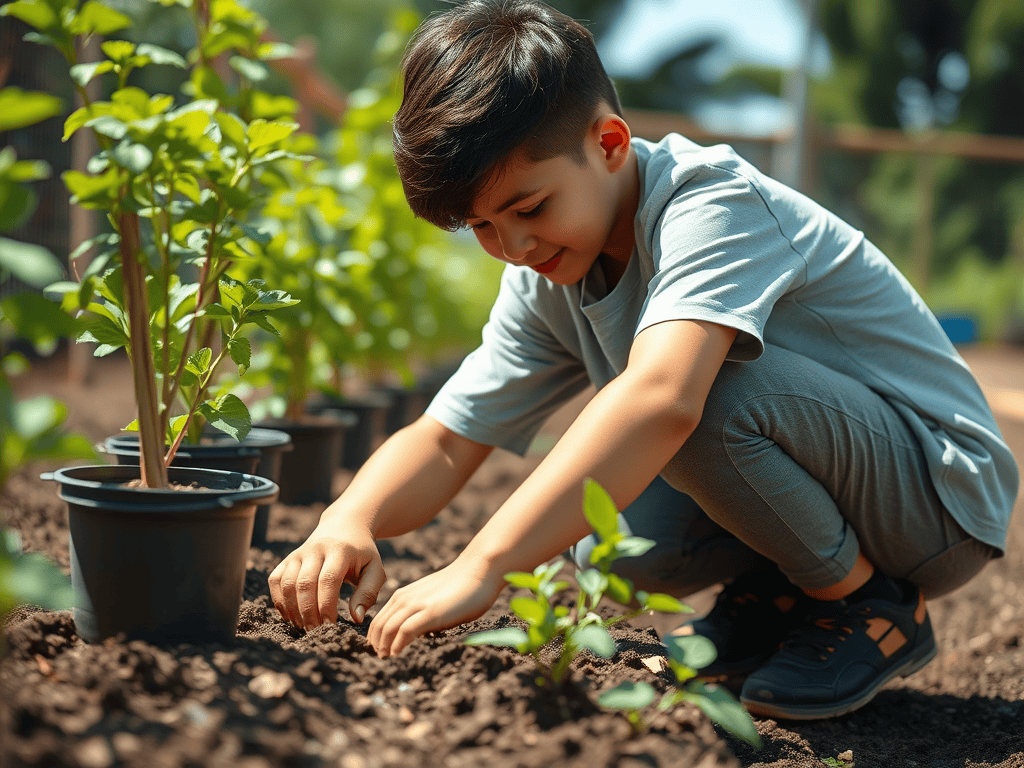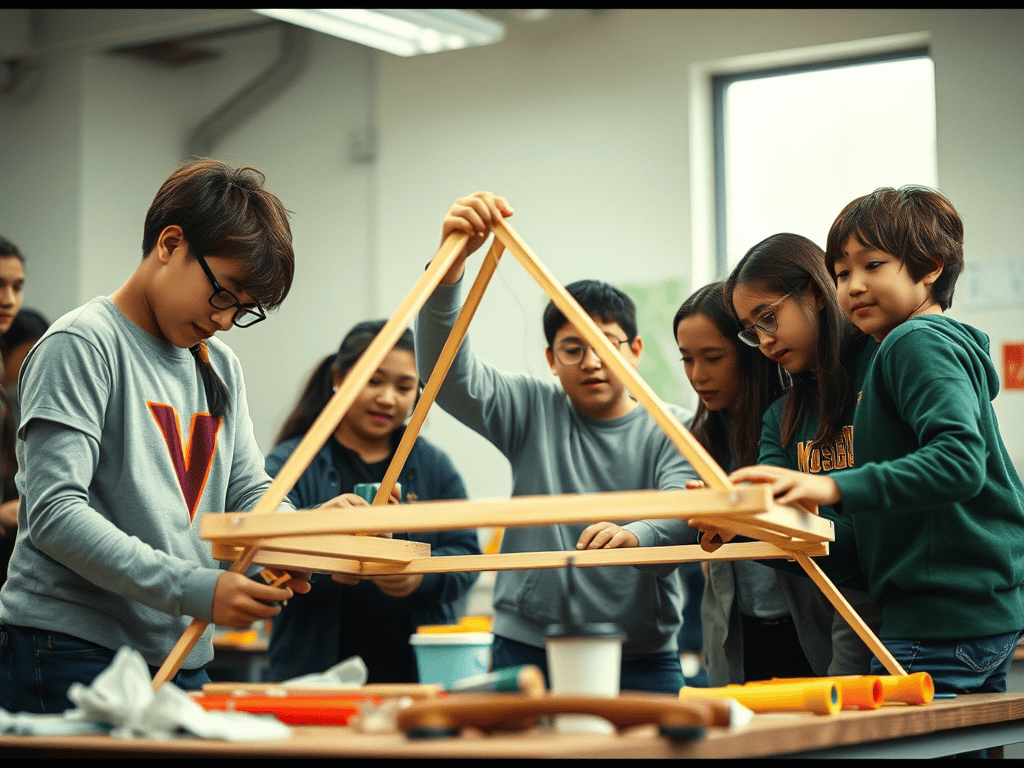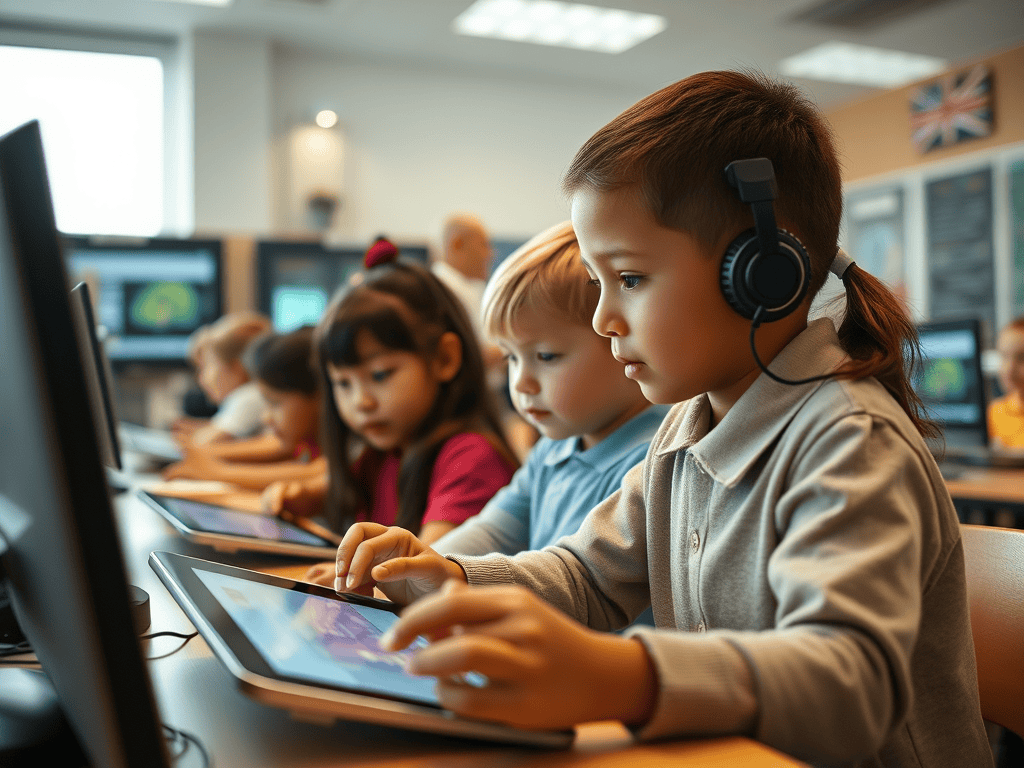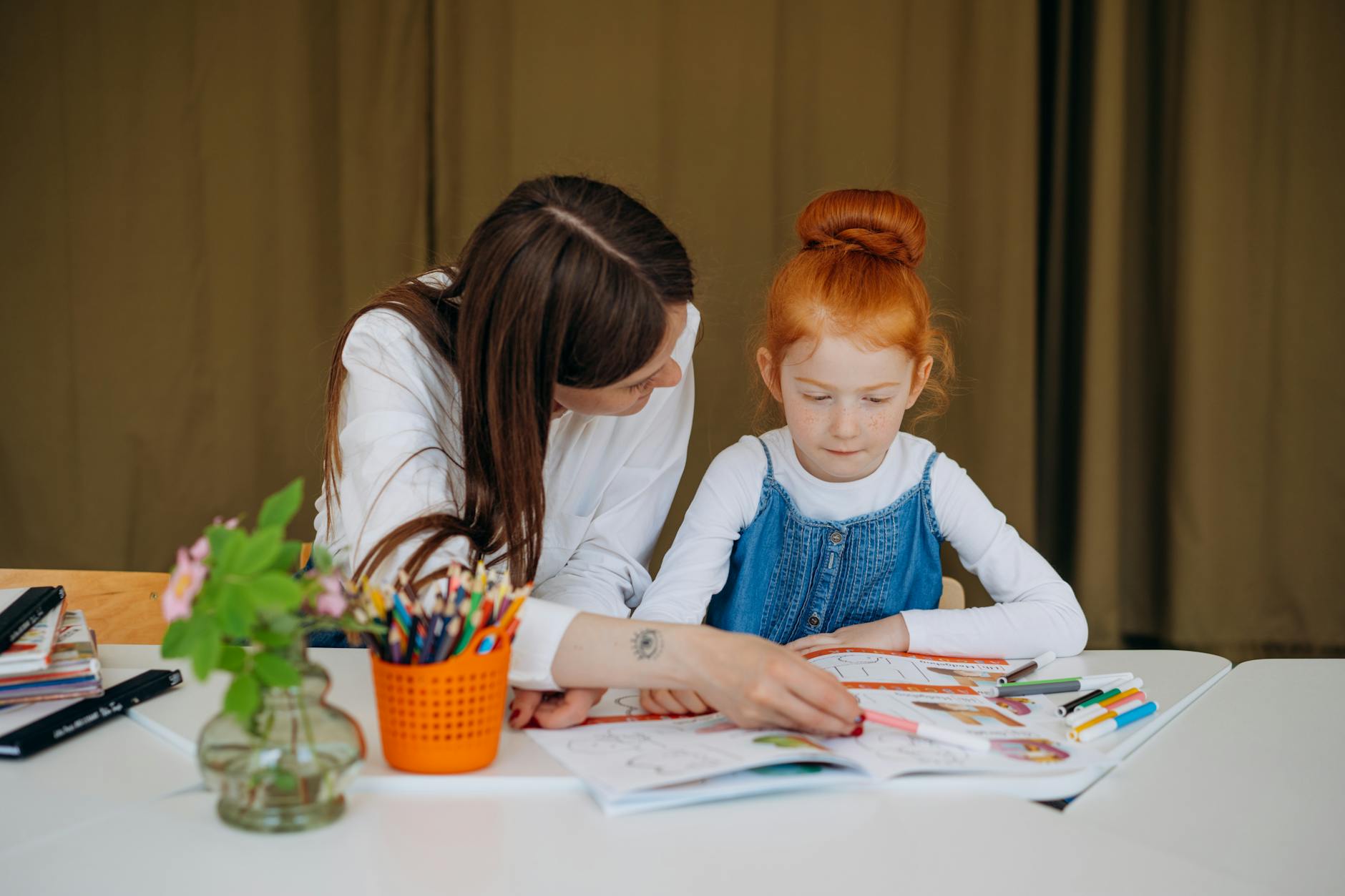Vision for a Hands-On Learning Charter School

In today’s rapidly evolving world, students need more than just academic knowledge to succeed. Traditional education often overlooks critical life skills and real-world applications. Research highlights the importance of schools teaching practical skills alongside academic subjects. Additionally, fostering emotional intelligence and resilience is essential, as these skills are key to thriving in life from grades K-12.
The Vision
I envision a school that blends academic learning with hands-on, real-world experiences. This approach ensures students gain a comprehensive education. It prepares them for both career and personal success. The curriculum would focus on developing well-rounded individuals with a broad set of skills, including:
- Health and Nutrition: Students would learn the principles of healthy living. They would cover a wide range of important topics like nutrition, exercise, and self-care. Garden-based projects would allow students to grow their own food. These projects would teach sustainability and the importance of environmental stewardship. They would also promote healthy eating habits. Exercise would be an integral part of the curriculum. It would emphasize not only physical fitness but also mental well-being.

- Financial Literacy: Students would learn essential financial skills. These include budgeting, saving, managing credit, and investing. This would help them develop sound financial habits. Practical projects like creating a budget or designing a financial plan would give students hands-on experience with real-world money management.

- Social Skills and Emotional Intelligence: Students would develop important social and emotional skills. They would learn to communicate effectively. They would resolve conflicts and regulate their emotions. These skills would prepare them to navigate complex social situations with empathy and understanding.
- Practical Skills for Everyday Living: The curriculum would include hands-on learning opportunities for practical skills. These skills encompass car maintenance and home repairs. Students would gain the tools to manage their living environments independently and confidently.

- Applied Math and Science: Math and science would be taught through real-world applications. This approach allows students to engage in hands-on projects. These projects include building structures, conducting experiments, and exploring engineering and manufacturing. This approach would help students see the relevance of these subjects in everyday life.

- Hands-On Projects on Local and World Events: Students engage in projects that explore local and global events, geography, and culture. These activities help students understand the world, fostering global citizenship and empathy. By studying history and current events through practical approaches, students can learn how to positively impact their communities and beyond.

- Technology and Coding: Students would develop digital literacy through coding, web design, app development, and robotics. By getting involved in projects like 3D printing, students would integrate technology with math and science. They would engage in a creative, hands-on way.

- Art, Music, and Theater: Creative subjects such as art, music, and theater would be integrated into the curriculum. This integration aims to foster self-expression. It also promotes emotional well-being. These areas of study would help students build confidence, develop their creative talents, and learn to collaborate with others.
- Interview Skills and Self-Expression: Students would gain valuable skills for the professional world. They would learn how to write resumes and cover letters. They would learn to conduct themselves in interviews and present themselves confidently. Additionally, they would learn how to express themselves effectively through speech and writing. These skills would help them navigate future career opportunities with poise and professionalism.
- First Aid and Helping Others: First aid training would be an essential part of the curriculum. It ensures students are prepared to care for themselves in emergencies. They would also be ready to help others in emergencies. They would also learn when it is appropriate to assist others and how to seek professional help when necessary.
- Electives for Personal Growth as students enter middle and high school: Students can explore various electives and activities, including:
- Sports: Fostering teamwork, discipline, and physical fitness.
- Animal Care: Understanding animal welfare and responsible care.
- Community Service: Engaging in volunteer work and giving back to the community.
- Woodworking: Acquiring hands-on, practical skills through craft projects.
- Solar Energy: Exploring renewable energy and sustainability concepts.
- Band: Developing musical talents and collaboration through performance.
- Small Business Startup: Gaining insight into entrepreneurship and the basics of starting a business.
A Realistic Path Forward
This vision represents a shift toward a more holistic approach to education, one that emphasizes real-world skills and personal development. This model is ambitious. It addresses the growing need for students to be prepared for academic success. It also prepares them for life in all its complexity.
Creating a school with this vision would require collaboration and support from the community, educators, and professionals from various fields. We can make this vision a reality together. We will provide students with the tools they need. These tools will help them succeed in a rapidly changing world.
If you are interested in discussing how we can bring this vision to life, please contact Rachel Wise, School Psychologist and Licensed Behavior Specialist, at 484-201-3815.
References
- Ekwueme, C. O., Ekon, E. E., & Ezenwa-Nebife, D. C. (2015). The impact of hands-on approach on student academic performance in basic science and mathematics. Higher Education Studies, 5(6), 47-51. https://doi.org/10.5539/hes.v5n6p47
- Francois, D. (2022). Learning to fly: The impact of project-based learning on development of the 4Cs in the elementary grades (Doctoral dissertation, University of Massachusetts Global). https://digitalcommons.umassglobal.edu/edd_dissertations/455/






